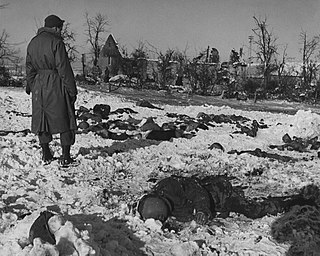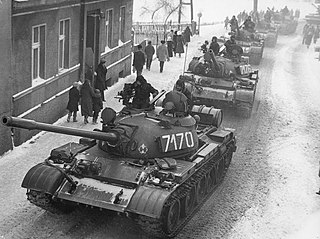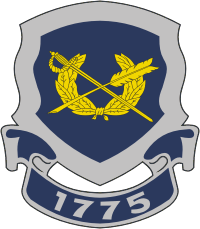
The Armed Forces of the Philippines (AFP) are the military forces of the Philippines. It consists of three main service branches; the Army, the Air Force, and the Navy. The President of the Philippines is the Commander-in-Chief of the AFP and forms military policy with the Department of National Defense, an executive department acting as the principal organ by which military policy is carried out, while the Chief of Staff of the Armed Forces of the Philippines serves as the overall commander and the highest-ranking officer in the AFP.

A war crime is a violation of the laws of war that gives rise to individual criminal responsibility for actions by combatants in action, such as intentionally killing civilians or intentionally killing prisoners of war, torture, taking hostages, unnecessarily destroying civilian property, deception by perfidy, wartime sexual violence, pillaging, and for any individual that is part of the command structure who orders any attempt to committing mass killings including genocide or ethnic cleansing, the granting of no quarter despite surrender, the conscription of children in the military and flouting the legal distinctions of proportionality and military necessity.

Martial law is the replacement of civilian government by military rule and the suspension of civilian legal processes for military powers. Martial law can continue for a specified amount of time, or indefinitely, and standard civil liberties may be suspended for as long as martial law continues. Most often, martial law is declared in times of war and/or emergencies such as civil unrest and natural disasters. Alternatively, martial law may be declared in instances of military coup d'états.
A court-martial or court martial is a military court or a trial conducted in such a court. A court-martial is empowered to determine the guilt of members of the armed forces subject to military law, and, if the defendant is found guilty, to decide upon punishment. In addition, courts-martial may be used to try prisoners of war for war crimes. The Geneva Conventions require that POWs who are on trial for war crimes be subject to the same procedures as would be the holding military's own forces. Finally, courts-martial can be convened for other purposes, such as dealing with violations of martial law, and can involve civilian defendants.

Muhammad Zia-ul-Haq was a Pakistani military officer who served as the sixth president of Pakistan from 1978 until his death. He also served as the second chief of the army staff of the Pakistan Army from 1 March 1976 until his death.

A commander-in-chief or supreme commander is the person who exercises supreme command and control over an armed force or a military branch. As a technical term, it refers to military competencies that reside in a country's executive leadership, a head of state, head of government, or other designated government official.
Marshal is a term used in several official titles in various branches of society. As marshals became trusted members of the courts of Medieval Europe, the title grew in reputation. During the last few centuries, it has been used for elevated offices, such as in military rank and civilian law enforcement.

Military police (MP) are law enforcement agencies connected with, or part of, the military of a state. In wartime operations, the military police may support the main fighting force with force protection, convoy security, screening, rear reconnaissance, logistic traffic management, counterinsurgency, and detainee handling.
The Uniform Code of Military Justice (UCMJ) is the foundation of the system of military justice of the armed forces of the United States. The UCMJ was established by the United States Congress in accordance with their constitutional authority, per Article I Section 8 of the U.S. Constitution, which provides that "The Congress shall have Power. .. to make Rules for the Government and Regulation of the land and naval forces" of the United States.

The Judge Advocate General's Corps also known as the "JAG Corps" or "JAG" is the legal arm of the United States Air Force.
A vicar general is the principal deputy of the bishop of a diocese for the exercise of administrative authority and possesses the title of local ordinary. As vicar of the bishop, the vicar general exercises the bishop's ordinary executive power over the entire diocese and, thus, is the highest official in a diocese or other particular church after the diocesan bishop or his equivalent in canon law.
General of the Army is a five-star general officer rank in the United States Army. It is generally equivalent to the rank of Field Marshal in other countries. In the United States, a General of the Army ranks above generals and is equivalent to a fleet admiral and a general of the Air Force. The General of the Army insignia consisted of five 3⁄8-inch (9.5 mm) stars in a pentagonal pattern, with touching points. The insignia was paired with the gold and enameled United States coat of arms on service coat shoulder loops. The silver colored five-star metal insignia alone would be worn for use as a collar insignia of grade and on the garrison cap. Soft shoulder epaulets with five 7⁄16-inch (11 mm) stars in silver thread and gold-threaded United States coat of arms on green cloth were worn with shirts and sweaters.

The Judge Advocate General's Corps of the United States Army, also known as the U.S. Army JAG Corps, is the legal arm of the United States Army. It is composed of Army officers who are also lawyers and who provide legal services to the Army at all levels of command, and also includes legal administrator warrant officers, paralegal noncommissioned officers and junior enlisted personnel, and civilian employees.

The ranks and insignia used by Russian Ground Forces are inherited from the military ranks of the Soviet Union, although the insignia and uniform has been altered slightly.

The judicial system of Turkey is defined by Articles 138 to 160 of the Constitution of Turkey.

The Prosecutor General of Russia heads the system of official prosecution in courts and heads the Office of the Prosecutor General of the Russian Federation. The Prosecutor General remains one of the most powerful component of the Russian judicial system.
The United States Marine Corps' Judge Advocate Division serves both to advise the Commandant of the Marine Corps (CMC) and other officials in Headquarters, Marine Corps on legal matters, and to oversee the Marine Corps legal community. The head of the Judge Advocate Division (JAD) is the Staff Judge Advocate to the Commandant.
In the United States Armed Forces, a brigadier general is a one-star general officer in the United States Army, Marine Corps, Air Force, and Space Force.
The Judge Advocate General's Corps, also known as JAG or JAG Corps, is the military justice branch or specialty of the United States Air Force, Army, Coast Guard, Marine Corps, and Navy. Officers serving in the JAG Corps are typically called judge advocates.

The Ukrainian People's Republic (UPR) was a short-lived state in Eastern Europe. Prior to its proclamation, the Central Council of Ukraine was elected in March 1917 as a result of the February Revolution, and in June, it declared Ukrainian autonomy within Russia. Its autonomy was later recognized by the Russian Provisional Government. Following the October Revolution, the Central Council of Ukraine denounced the Bolshevik seizure of power and proclaimed the Ukrainian People's Republic with a territory including the area of approximately eight Russian imperial governorates. It formally declared its independence from Russia on 22 January 1918.











